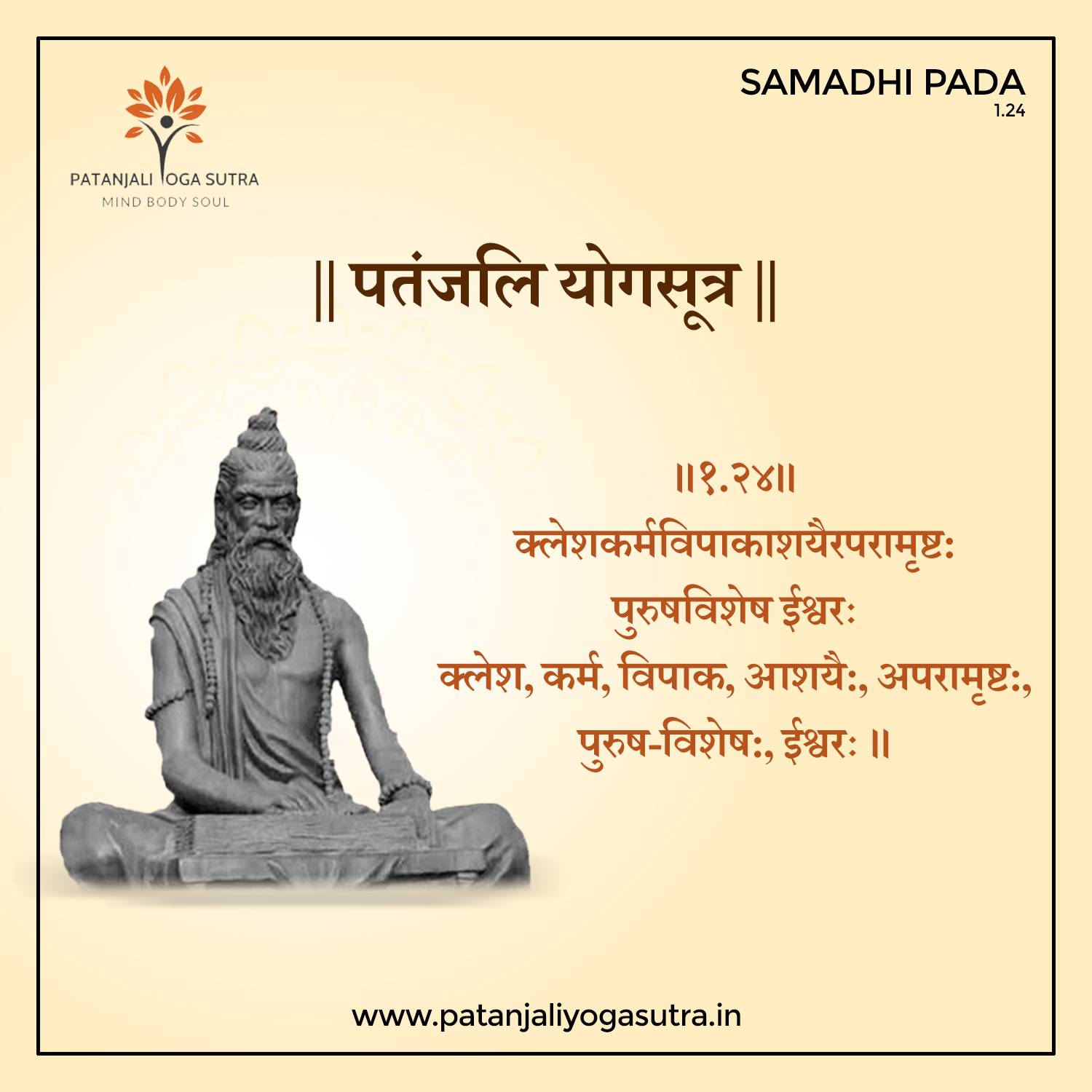



कर्म को भी अलग-अलग परिपेक्ष्य में विभाजित किया गया है । वैसे सामान्यत: लोक में पाप कर्म और पुण्य कर्म ये दो प्रकार से कर्म के विभाग किये हैं लेकिन विभिन्न शास्त्रों में मुख्यतःकर्म को तीन प्रकार से बांटा गया है |
योग दर्शन में कर्म को तीन प्रकार से बांटा गया है-
भगवतगीता में कर्म का तीन प्रकार से प्रभाग किया है-
कर्म जब फल देने लगते हैं तो इसी को विपाक कहा गया है और ईश्वर चूँकि निष्काम कर्म करता हुआ जगत का परिपालन करता है तो उसके कर्म नहीं बनने के कारण वह सर्वथा विपाक से रहित होता है |
जब किसी कर्म के विपाक को प्राप्त होने पर उसके भोगने से उत्पन्न वासनाएं होती हैं उन्हें योग दर्शन कि भाषा में आशय कहा गया है । कहीं कहीं आशय का अर्थ दूसरी तरह भी किया जाता है । कर्म जब तक फलोन्मुख नहीं होते तब तक चित्तभूमि में जो वासना सुप्त रूप से रहती है वह आशय नाम से कही जाती है। ईश्वर कर्म एवं कर्मफल से रहित होता है इसलिए वह आशय रहित भी होता है अर्थात ईश्वर में किसी भी प्रकार से कोई भी वासनाएं नहीं होती हैं । कर्म, कर्मफल एवं उन्हें भोगने से पुरुष उनकी वासनाओं से बच नहीं सकता इसीलिए ईश्वर को महर्षि पतंजलि ने पुरुष विशेष के नाम से कहा है |
Ishwar is extraordinary force which is completely severed from klesha (ignorance/misconceptions etc. five kleshas), deeds (its three types), vipak (fruits of deeds), Ashaya (all kinds of desires).
Kleshas are of five types:
Action is also divided as per different perspectives. Though, generally in this world deeds are divided into sinful deeds and noble deeds. But according to different shastras deeds are broadly divided into three categories:
Nimit deeds Purposeful
Naimitik deeds Casual
Kamya deeds Desirable
In Yoga Darshan deeds are divided into three types:
Shukla Karma or Auspicious Deeds
Ashukla Karma or Inauspicious Deeds
Mixed Deeds
In Bhagwad Gita deeds are divided into three categories:
Karma Action
Akarma Inaction
Vikarma Sin
When deeds start bearing fruit then this is called Vipak. And God nurtures the world flawlessly yet action free, so He is always deprived of Vipak.
When desires are generated after enjoying the fruit of your deeds, it is called Ashaya in terms of Yoga Darshan. The desires that remain dormant in your mind until your deeds bear fruit are called Ashaya. Since Ishwar is free from actions and fruits of deeds, so He is free from Ashaya too. Since man cannot escape his deeds, their fruits and ashaya, therefore, Maharshi Patanjali refers to God as Purush Vishesh i.e. extraordinary force..
सूत्र: क्लेशकर्मविपाकाशयैरपरामृष्ट: पुरुषविशेष ईश्वरः
क्लेश कर्मों के पार है जो
सारे जगत का आधार है जो
कर्म फलों में नहीं जिसकी आसक्ति
वासनाएं पास नहीं जिसके आ सकती
पुरुष विशेष वह ईश्वर कहलाता
करुणाकर, दयानिधान वही है दाता
पाप पुण्य से रहित सदा है
निष्काम कर्म दैवीय संपदा है
गुणातीत वह सदा शांत है
अगाध सिंधु वह सदा प्रशांत है
जीवात्माओं का एक आधार वह
योगियों का एक विचार वह
ishwar do karm ,not free from action , but his karma is shubh for atma and not with any attachment or any klesh.
please clarify this also .